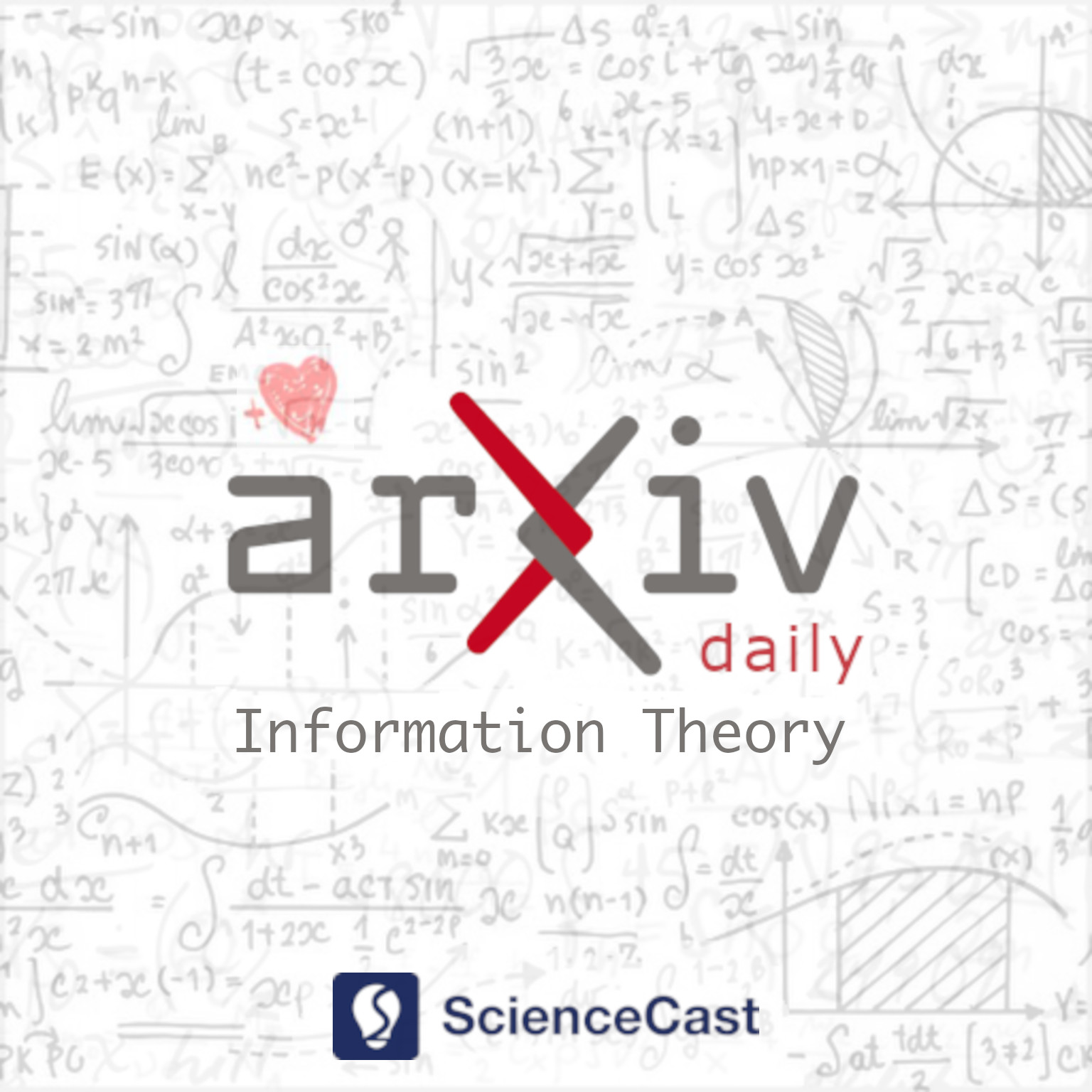
Information Theory (cs.IT)
Mon, 07 Aug 2023
1.Off-the-grid Blind Deconvolution and Demixing
Authors:Saeed Razavikia, Sajad Daei, Mikael Skoglund, Gabor Fodor, Carlo Fischione
Abstract: We consider the problem of gridless blind deconvolution and demixing (GB2D) in scenarios where multiple users communicate messages through multiple unknown channels, and a single base station (BS) collects their contributions. This scenario arises in various communication fields, including wireless communications, the Internet of Things, over-the-air computation, and integrated sensing and communications. In this setup, each user's message is convolved with a multi-path channel formed by several scaled and delayed copies of Dirac spikes. The BS receives a linear combination of the convolved signals, and the goal is to recover the unknown amplitudes, continuous-indexed delays, and transmitted waveforms from a compressed vector of measurements at the BS. However, in the absence of any prior knowledge of the transmitted messages and channels, GB2D is highly challenging and intractable in general. To address this issue, we assume that each user's message follows a distinct modulation scheme living in a known low-dimensional subspace. By exploiting these subspace assumptions and the sparsity of the multipath channels for different users, we transform the nonlinear GB2D problem into a matrix tuple recovery problem from a few linear measurements. To achieve this, we propose a semidefinite programming optimization that exploits the specific low-dimensional structure of the matrix tuple to recover the messages and continuous delays of different communication paths from a single received signal at the BS. Finally, our numerical experiments show that our proposed method effectively recovers all transmitted messages and the continuous delay parameters of the channels with a sufficient number of samples.
2.Near-optimal pilot assignment in cell-free massive MIMO
Authors:Raphael M. Guedes, José F. de Rezende, Valmir C. Barbosa
Abstract: The main source of performance degradation in cell-free massive MIMO is pilot contamination, which causes interference during uplink training and affects channel estimation negatively. Contamination occurs when the same pilot sequence is assigned to more than one user. This is in general inevitable, as the number of mutually orthogonal pilot sequences corresponds to only a fraction of the coherence interval. We introduce an algorithm for pilot assignment that has an approximation ratio close to 1 for a plausibly large number of orthogonal pilot sequences. It also has low computational complexity under massive parallelism.
3.Joint Device Identification, Channel Estimation, and Signal Detection for LEO Satellite-Enabled Random Access
Authors:Boxiao Shen, Yongpeng Wu, Wenjun Zhang, Symeon Chatzinotas, Björn Ottersten
Abstract: This paper investigates joint device identification, channel estimation, and signal detection for LEO satellite-enabled grant-free random access, where a multiple-input multipleoutput (MIMO) system with orthogonal time-frequency space modulation (OTFS) is utilized to combat the dynamics of the terrestrial-satellite link (TSL). We divide the receiver structure into three modules: first, a linear module for identifying active devices, which leverages the generalized approximate message passing (GAMP) algorithm to eliminate inter-user interference in the delay-Doppler domain; second, a non-linear module adopting the message passing algorithm to jointly estimate channel and detect transmit signals; the third aided by Markov random field (MRF) aims to explore the three dimensional block sparsity of channel in the delay-Doppler-angle domain. The soft information is exchanged iteratively between these three modules by careful scheduling. Furthermore, the expectation-maximization algorithm is embedded to learn the hyperparameters in prior distributions. Simulation results demonstrate that the proposed scheme outperforms the conventional methods significantly in terms of activity error rate, channel estimation accuracy, and symbol error rate.